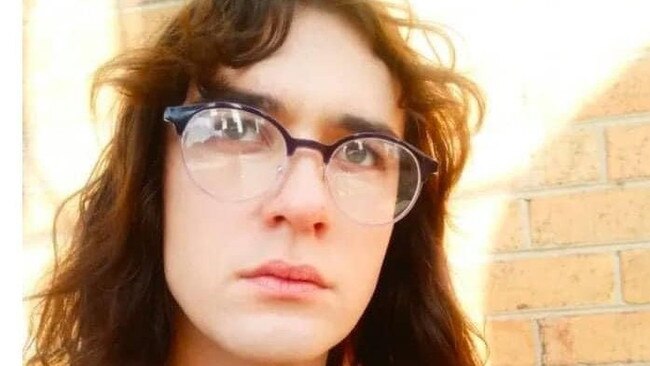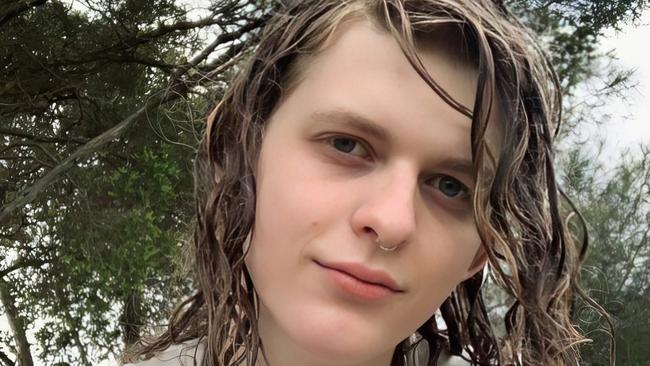Findings into Victorian transgender suicide cluster handed down
A coroner has called for more resources for gender-affirming clinics, police data collection encapsulating all gender identities and the restriction of the online sale of ‘a suicide chemical’.
A coronial investigation into a suicide cluster of five transgender women in Melbourne has recommended the Victorian health department increase resourcing for gender affirming clinics and for the federal government to look into restricting the online sale of a substance used by three of the women to take their lives.
Before delivering her findings to a packed courtroom on Thursday, Victorian Coroner Ingrid Giles acknowledged the “deep grief” experienced by loved ones and the wider LGBTIQA+ community due to the deaths.
Bridget Flack, 28, who died by suicide, was reported missing on December 1, 2020, and 11 days later she was found dead by two community members near Kew.
Flack’s death, along with Heather Pierard, 20, Matt Byrne, 25, Natalie Wilson, 33 and an individual known by the pseudonym AS, 19, were all the subject of Ms Giles’ investigation.
All women had experiences with mental health issues, including gender dysphoria, anxiety, depression, border personality disorder and post-traumatic stress disorder.
The two-hour hearing heard the failures in the police’s investigation into Flack’s disappearance, including not agreeing to an initial request to triangulate her phone and not completing her missing person’s report adequately, resulted in her being deemed “medium risk” when she should have been marked high.
Ms Giles said Victoria Police had failed to engage with community members conducting a search for Flack, an effort that led to her being found, and recalled evidence from an employee at LGBTIQA+ service Switchboard who said “we had potentially 6000 people who were impacted by suicide contagion”.

She said evidence indicated that Byrne, who died in March 2021, AS who died on May 9, 2021, and Pierard who died on May 11 knew directly at least one other person in the cluster.
“Given their means of suicide by way of ingesting (chemical compound) it is likely that there was some discussion of this method of suicide among them, including with a fourth person in NSW, “E”, who died on July 23, 2021, after ingesting (chemical compound),” Ms Giles said.
The Coroner raised the lack of support and barriers faced by the transgender and gender-diverse community, including discrimination and long wait times for gender affirming services,.
Ms Giles recommended that Victoria Police make changes to how missing persons reports are filed, make LGBTIQA+ awareness training mandatory for all staff, and improve data collection to include all gender identities, not just “male”and “female” in its systems to improve the identification of LGBTIQA+ suicide rates.

A recommendation for Assistant Mental Health and Suicide Prevention Minister Emma McBride to investigate ways to further restrict the online sale of a chemical compound in Australia was also handed down, with three of the five deaths in the suicide cluster a result of toxicity from the substance.
Earlier in the inquest, Professor Jeffrey Zajac from Austin Health said mental health issues and distress experienced by transgender and gender diverse individuals were “significantly” reduced after starting gender affirming treatment.
Ms Giles recalled this evidence and said the three gender clinics in the state that receive public funding, Monash Health Gender Clinic, Austin Health Gender Clinic and Equinox, as well as RCH Gender Service for adolescents, were stretched.
The court heard that Equinox had, at the time of the inquest, closed its waitlist and had about 1500 existing patients.
“This situation is clearly untenable,” the Coroner said.
“I therefore intend to make a recommendation … to the Department of Health to consider immediately increasing resourcing to meet the growing demand for publicly funded gender clinics delivering critical culturally appropriate gender-affirming care to TGD patients.”
Flack’s sister, Angela Pucci Love said the coronial process was “tough but worthwhile”.
“While incredibly hard, we embrace this process for the next person, the next family, the next situation who feels hopeless, with hope it won’t be,” she said.
“There is a sense of relief and vindication in knowing there were failures in the handling of Bridget’s disappearance by Victoria Police, and I sincerely hope the recommendations are heard and actioned, because this is a clear opportunity for change.”
If you or someone you know needs help, call Lifeline on 13 11 14, Beyond Blue on 1300 224 636, QLife on 1800 184 527, or Kids Helpline on 1800 55 1800.






